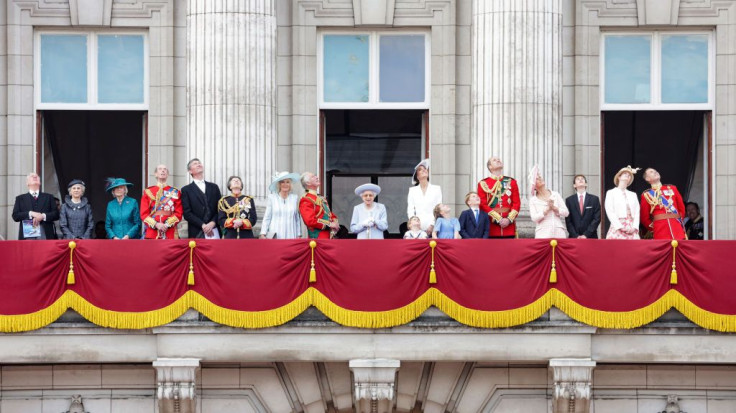The year 2022 has been a tumultuous for the British monarchy, one that has found them dogged with criticisms and questions of relevance that have only intensified in an era with a similarly-tumultuous British government that found itself shuffling through three prime ministers in a few months.
With that in mind, here are three major events that defined the British Royal Family in a year where they found themselves constantly battling both for the relevance of the institution and for the attention of the public.
Royals’ visit to the Caribbean prompted fury of the former colony
Prince William and Kate Middleton, the then-Duke and Duchess of Cambridge, had visited the former territories of the United Kingdom in the Caribbean region for Queen Elizabeth II’s Platinum Jubilee. It was intended as a show of force from the monarchy in --- its more-modern side to entice the countries to stay within the British Commonwealth, according to The Guardian.
It was anything but successful, however, as the trip to Belize, Jamaica, and the Bahamas were immediately hampered with protests. There were calls from politicians to remove the Queen as the Head of State, and demands from many for an official apology for Britain’s history of slavery and colonialism in the region.
Jamaica had found itself openly-considering during the visit to remove the Queen and the British monarchy as the country’s Head of State and become a republic like Barbados, while the visit to Belize witnessed protests due to a land dispute that involved a charity of William’s. The Bahamas, meanwhile, were demanding an apology for the past crimes committed by the British in the islands.
“It was dubbed in [the UK] media as a charm offensive, but I’m not quite so sure it came off that way. It wasn’t a royal failure, but I wouldn’t quite deem it a regal success either,” Jamaica Gleaner associate editor Tyrone Reid said.
The death of Queen Elizabeth and Ascension of King Charles III
The Queen’s sudden death on Sept. 8 shocked the world, and much has been said at the time about the possible problems that a King Charles reign would have due to his past controversies involving Princess Diana as well as his conduct during his time as a prince, including a then-recent scandal revolving around accepting donations for his charity from less-than-reputable people, Time magazine reported.
At the time, many had been calling for Charles to step down or give way to his son William to become King instead, and recent polls still show that William and Kate continue to be more popular with the public than he is, with his polling steady at the low 40s, with more approval from the older Baby Boomer population of England than with the Millennials of the country, YouGov reported.
Still, many of the people’s fears about Charles becoming a “politically outspoken monarch” has proven to remain untrue as of press time, though it remains to be seen if he will stay neutral like his mother or if he will forge his own path as a political figure.
‘Harry & Meghan’ raise questions about racism in the monarchy
The release of “Harry & Meghan” on Netflix has prompted many to ask the question again as to whether the British Royal Family’s treatment of Prince Harry’s wife Meghan Markle shows the entitlement and racism behind the monarchy, according to the Los Angeles Times.
The series has showed that Harry and Meghan’s relationship with many of the British Royal Family, including his own father and brother, had soured significantly even before their exit as working royals, and had only deteriorated further as the two sides continue to clash with each other–including with the release of this docuseries.
The Royal Family has yet to comment on the release of the six-episode docuseries, which some have called “an attack on the family,” but the public reception in England has been mixed, with many wondering what the true purpose of releasing the docuseries really is.
“I’m not a fan of the monarchy at all, but I do question the motives behind this series. Is it money or fame or to get back at your sibling and father?” Jules, a 36-year-old woman in England, asked.
Where will the monarchy go from here?
As the British government and public undergo more economic and structural challenges in the next few years, questions of why the U.K. still has a monarchy in these modern times will continue to follow them no matter what they do. Their survival, it appears, depends upon answering this question in a way that satisfies the British public at large.

© 2025 Latin Times. All rights reserved. Do not reproduce without permission.





